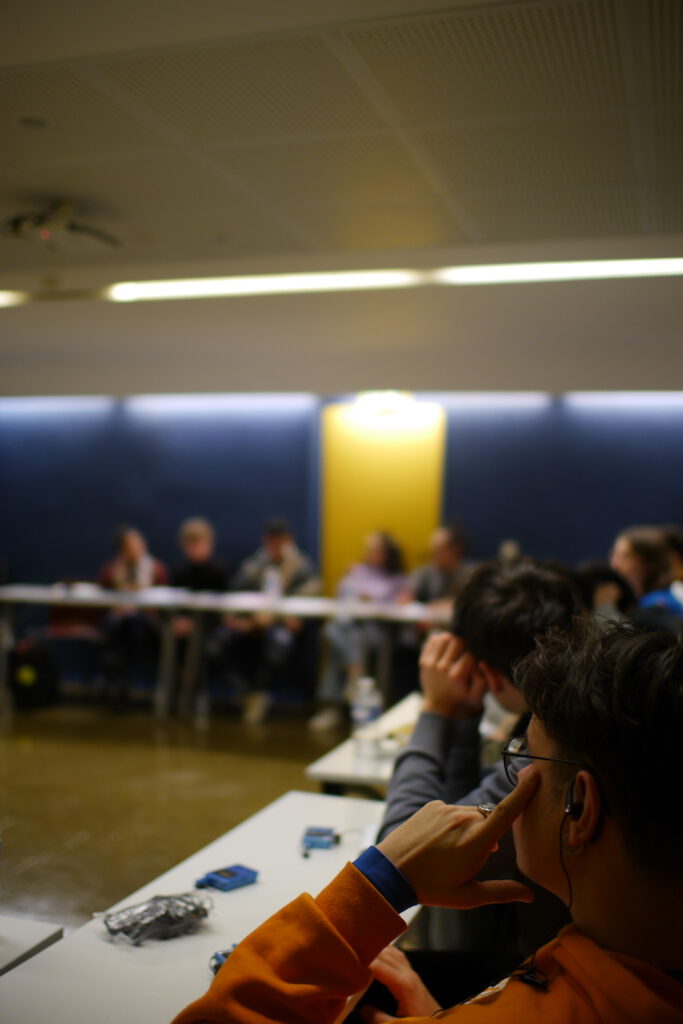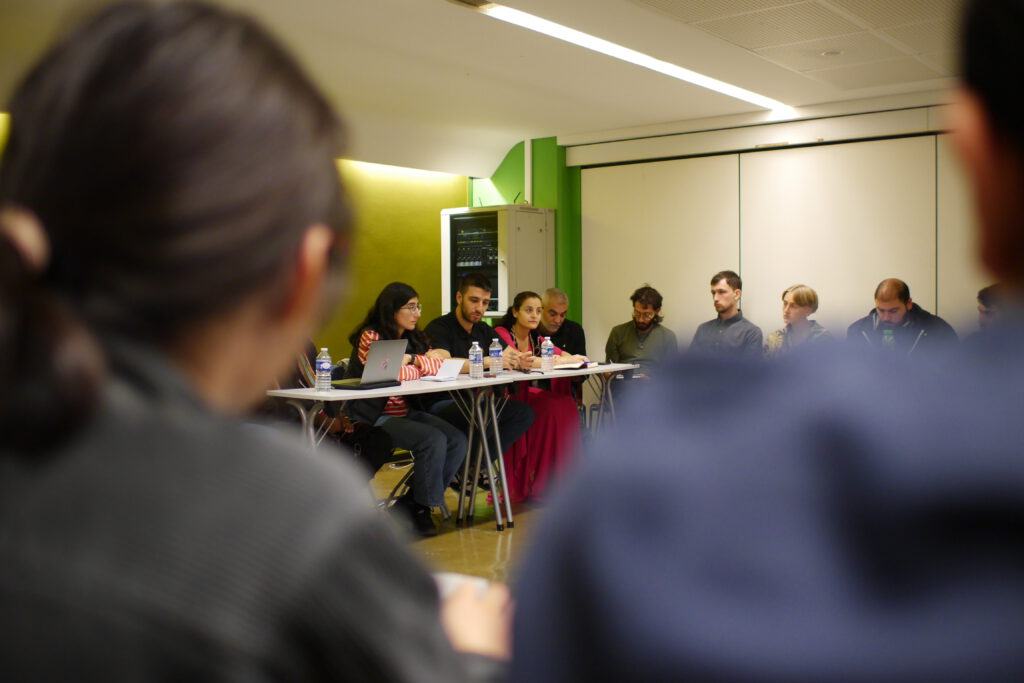The escalation of violence in the ongoing war in Palestine is just the latest episode in a series of armed conflicts devastating the region. The conflicts involve a complex web of state and non-state actors, including imperialist powers like NATO. The BRICS states are getting more and more involved in the conflicts, thus expanding their global reach. We find ourselves in a historical moment deeply impacted by the devastating consequences of what we refer to as ‘the Third World War.’ This concept allows us to adopt a comprehensive analytical perspective.
In this context, a workshop titled “Youth of the Middle East in the Center of the 3rd World War” took place at the First World Youth Conference. The panelists were from various regions in the Middle East, including Armenia, Balochistan, Slemani in Başȗr (South Kurdistan), and Rojava (West Kurdistan), also known as the Autonomous Administration of Northeast Syria.
The Armenian panelists mentioned that Turkey’s genocidal policies against Armenians began in 1915 with the Young Turks and continues to this day. The attacks are often conducted in cooperation with Azerbaijan. Turkish nationalism seeks to homogenize the population, resulting in Armenians being forced to live in the diaspora. Due to the ongoing conflict in Azac their homeland is being destroyed.

Following, a speaker from Balochistan discussed the circumstances of the current Jîna Revolution, which started in Saqqez, Rojhelat. He highlighted the crucial role that the revolutionary forces in Balochistan are playing within it. Balochistan faces severe state-enforced repression, with high rates of abductions, torture, and collective punishments. It is a region occupied by both the Iranian regime and Pakistan. The rape and subsequent killing of a 14-year-old girl in Balochistan led to a significant uprising, further emphasizing the region’s importance in the ongoing Revolution.
Genocidal policies are not solely rooted in the borders established a century ago but are exacerbated by the ongoing nationalization and international relations that involve arms sales and support for ongoing conflicts in Yemen, Palestine, Sudan, Kurdistan, and Rojava. A participant from Rojava emphasized that the communal living and self-defense forces in Rojava serve as a model for all of the Middle East. Reber Apo aimed to find a democratic solution for the Middle East, which has been in a constant loop of crisis.
A speaker from Başȗr, Slemani, pointed out that guaranteeing a southern Kurdish autonomous state will not end anti-Kurdish racism. Kurds in Başȗr are often perceived as “separatists,” in order to de-legitimize their existence. He noted that “the political parties of my people, who should be genuinely aiming to achieve freedom for Kurdish people in South Kurdistan, are aiding in the ongoing anti-Kurdish process.”

The workshop also led to a discussion about the terminology of the Third World War. Participants questioned how applicable the term “Third World War” is to the current international conflict. Several perspectives converged on the idea that the Third World War operates primarily through the mental realm and profoundly affects the human psyche. Unlike the first and second world wars, characterized by two opposing fronts, the new war is internationally interconnected and involves structural genocidal policies that affect regions from Armenia to Kurdistan, from Rojhilat and Balochistan to Afghanistan, Sudan, and Palestine.
